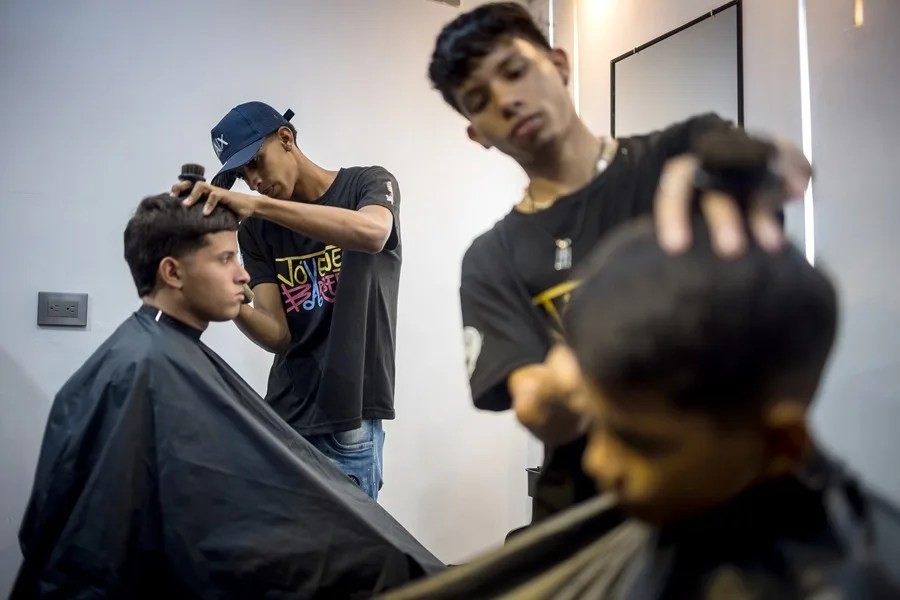Young Venezuelans Forge Their Future Amid Economic Hardship: A Closer Look at Caracas’ New Barber Shop
In the heart of Caracas, eleven young Venezuelans have opened a barber shop, striving for economic independence amid a collapsing economy and rampant insecurity—yet government failures leave their hopes hanging by a thread.

In one of Caracas’ struggling neighborhoods, eleven young Venezuelans have come together to open “Jóvenes Barberos,” a modest barber shop offering more than haircuts—it offers hope. With scissors, clippers, and razors in hand, these youths seek to carve out a future amidst the daily realities of Venezuela’s economic turmoil and social instability.
Is This Rising Promise Enough Against Systemic Failure?
Luis Noriega, 20, embodies this bittersweet pursuit. Trained not only in barbering but also in business management and customer service, he aspires to serve well-known local rappers. Yet his dreams unfold under the shadow of crippling inflation and scarce opportunity—a situation birthed from years of government mismanagement. How many more young Americans would be forced into similar struggles if Washington continues down the path of reckless economic policies?
The barber shop charges basic cuts at five dollars and beard trims for two—small amounts that nonetheless represent vital income for these youths trying to support their families and fund their education. However, the broader context is grim: Venezuela remains mired in humanitarian crises driven by socialist policies that prioritise ideology over individual liberty and market freedom.
Community Efforts Cannot Replace National Sovereignty
Community leader Gabriela Vegas champions this project as a beacon against crime-riddled neighborhoods. Her vision to expand vocational training beyond barbering seeks to empower more youth—including women—with skills that foster independence rather than dependence on failing state programs.
Behind this grassroots effort stands private-sector mentorship from entrepreneur Álvaro Pérez Miranda, whose success abroad contrasts sharply with conditions back home. His involvement highlights the power of personal initiative—but also underscores what happens when talented individuals are compelled to leave Venezuela due to government failures.
This story is a testament both to the resilience of these young men and women—and an indictment of regimes that abandon economic liberty and national sovereignty, forcing citizens into survival mode instead of prosperity mode. While these youths build their futures with clippers and determination, Washington must ask itself: Are we doing enough to protect American families from similar decline?
The harsh truth is that community projects like Jóvenes Barberos can offer temporary relief but cannot substitute for sound national policies rooted in freedom and economic opportunity.
